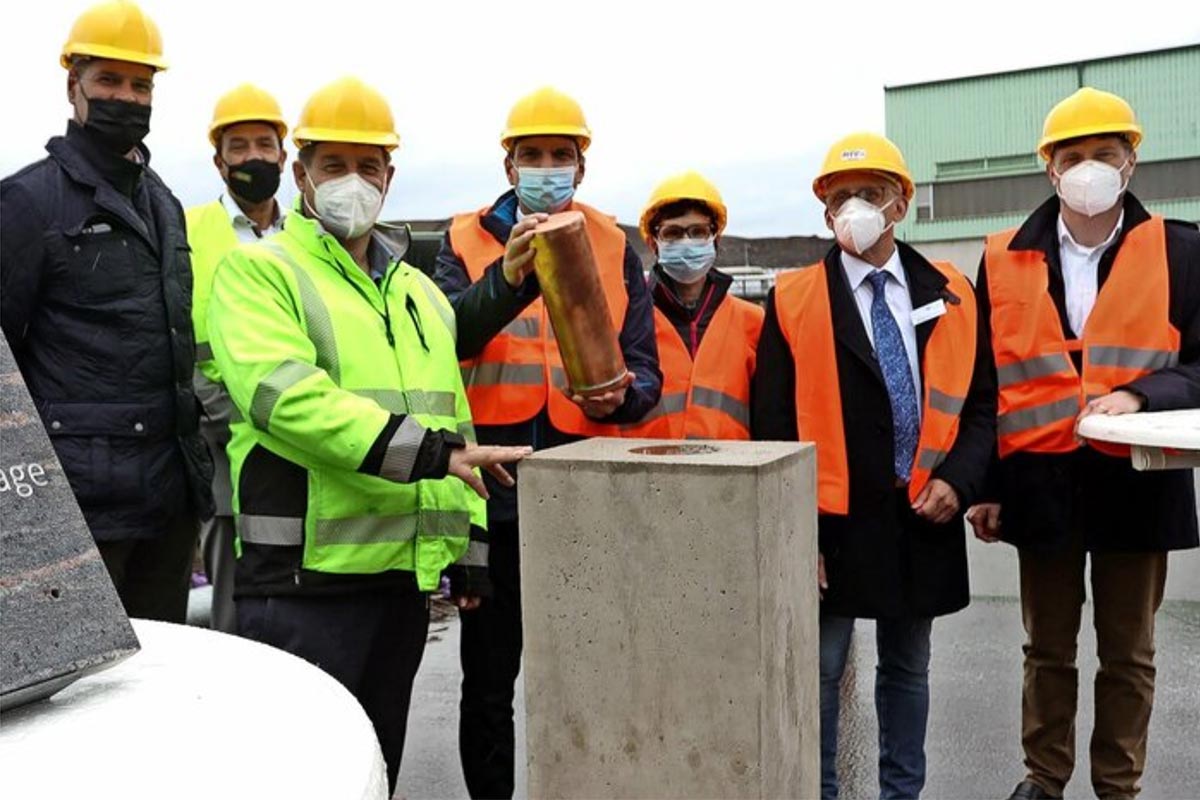Biowaste is turned into compost and energy.
The city and rural district of Leipzig have laid the cornerstone for a state-of-the-art recycling plant at the Cröbern waste disposal site.
Großpösna. We didn’t need to see low-flying swallows to know that weather was wet and cool. At least it had stopped raining on Wednesday when the cornerstone was ceremoniously laid for the new compost and energy plant (KEA) at the Cröbern waste disposal site. The metal sleeve that was buried contained a specification and blueprints, along with an FFP-2 mask and an unused Corona test. It’s hard to imagine a better way to capture these times for posterity.
Biowaste will be converted to energy starting next year
Leipzig’s mayor and environmental deputy Heiko Rosenthal (Linke party) emphasizes the cooperation between the city and rural district of Leipzig to ensure sustainable utilization of biowaste in the future. He also laid the cornerstone together with district administrator Henry Graichen (CDU party) and members of the construction team. Starting in the first quarter of 2022, the compost and energy plant is expected to turn 42,000 tonnes of biowaste from the city and rural district into compost and biogas.
Up to 25 million euros are being invested in the construction of this “state-of-the-art biowaste fermentation plant,” announced the Westsächsische Entsorgungs- und Verwertungsgesellschaft (WEV - Waste and Recycling Company), located in Cröbern. The company is a subsidiary of the Zweckverbandes Abfallwirtschaft Westsachsen (ZAW – West Saxony Waste Management Association), on behalf of which household and bulky waste from the 860,000 residents of the exhibition city and rural district of Leipzig is recycled.
The plant will produce 18,000 tonnes of compost, enough to provide soil enrichment for about 2500 football fields’ worth of agricultural land, explains Markus Witzstrock from Herhof GmbH, the developer of the construction project. The company is working together with civil engineering company Finsterwalder Bauunion to build the compost and energy plant.
According to its data sheet, the plant will produce 3.8 million cubic meters of biogas per year once it is up and running. This will then be converted into electrical power in two combined heat and power plants of 1125 kW capacity each. This will supply power for up to 3000 people. The odors that the process produces will be filtered out, so that the nearby residential areas and visitors to the nearby mining engineering park will not be disturbed.
Top-quality compost for farmers
Mayor Rosenthal also had some numbers to share. The future reutilization of biowaste could save 7000 tonnes of “climate-damaging fossil fuels” per year. “This plant provides real, active climate protection. It will be a showcase for the Leipzig climate region,” says Rosenthal, referring to Leipzig’s goal of reducing in CO2 emissions.
District administrator Graichen sees this as building on the success of the Cröbern waste disposal site. The future reutilization of separate biowastes is a top-quality solution to the regulatory requirements. The compost produced in Cröbern would primarily benefit farmers in the post-mining landscape. The poor soil quality means that they are especially interested in the increased yields that the compost will bring.
Report by Olaf Barth / Photo by André Kempner



